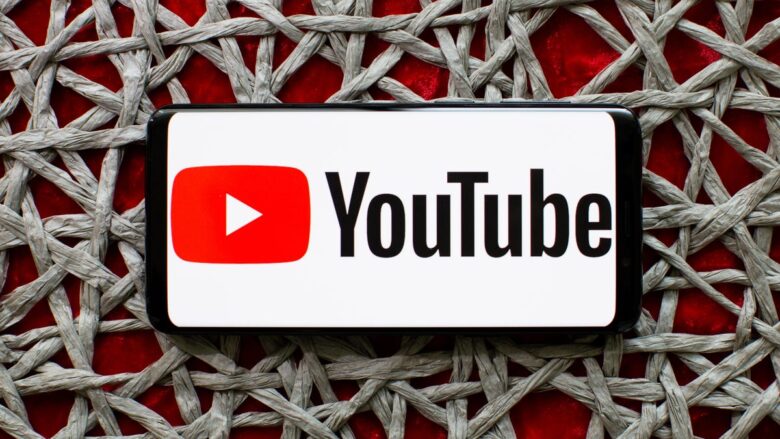In the digital age, entertainment is an ever-evolving phenomenon. The internet has made it possible for users to access and share content instantaneously, creating a thriving ecosystem of entertainment sites.
From the latest breaking news to viral videos that keep us laughing and engaged, according to ifvod tv, these platforms have come to define the way we consume entertainment today. In this article, we’ll dive into the top entertainment sites of the digital age, exploring the unique features that have made them stand out and thrive in this competitive landscape.
Contents
- YouTube: The King of Video Content
- Netflix: The Pioneer of Streaming Services
- Reddit: The Front Page of the Internet
- TikTok: The Viral Sensation of the Digital Age
- Twitch: The Livestreaming Phenomenon
- Instagram: The Visual Storyteller
- Twitter: The Pulse of the Internet
- Future Trends: What’s Next for Entertainment in the Digital Age?
YouTube: The King of Video Content

Source: cnet.com
When discussing the top entertainment sites, it’s impossible not to mention YouTube. Launched in 2005, YouTube has grown into the world’s largest video-sharing platform, with over 2 billion logged-in monthly users. YouTube’s massive user base and diverse content make it the go-to destination for everything from viral videos and music to educational content and live streams.
Key features that have contributed to YouTube’s success include the site’s easy-to-use interface, personalized recommendations, and the ability for creators to monetize their content through ads and partnerships. Furthermore, YouTube’s integration with other Google services, such as Search and Google Ads, has helped solidify its position as the leading video platform.
Netflix: The Pioneer of Streaming Services
Netflix started as a DVD rental service in 1997 but has since evolved into the world’s leading subscription-based streaming platform. With over 209 million subscribers, Netflix is known for its extensive library of TV shows, movies, and documentaries, as well as its original programming.
The platform’s success can be attributed to its early adoption of streaming technology, data-driven content curation, and investment in original productions. By taking risks on shows like “House of Cards” and “Stranger Things,” Netflix has transformed itself into a powerful content producer, challenging traditional media giants and reshaping the entertainment industry.
Reddit: The Front Page of the Internet
Reddit, founded in 2005, is a social news aggregation and discussion website where users submit content in the form of links, text posts, and images. With over 430 million monthly active users, Reddit has become a popular destination for entertainment seekers, news junkies, and niche communities alike.
One of Reddit’s standout features is its system of upvotes and downvotes, which allows users to collectively determine the visibility and popularity of content. The site’s structure, which organizes content into “subreddits” based on specific interests, also enables users to engage with like-minded individuals and contribute to vibrant online communities.
TikTok: The Viral Sensation of the Digital Age

Source: protocol.com
Launched in 2016, TikTok is a short-form video platform that has quickly gained popularity among younger users, amassing over 1 billion monthly active users worldwide. TikTok’s rapid rise can be credited to its unique features, such as its addictive “For You” feed, user-friendly video creation tools, and its ability to facilitate viral trends.
TikTok’s algorithm prioritizes content that keeps users engaged, rewarding creative and entertaining videos with increased visibility. As a result, TikTok has become a breeding ground for internet sensations and a powerful marketing tool for influencers and brands alike.
Twitch: The Livestreaming Phenomenon
Twitch, founded in 2011, is a live streaming platform primarily focused on video game content but has since expanded to include various other categories, such as music, cooking, and talk shows. With over 140 million monthly active users, Twitch has become the leading platform for live streaming in the digital age.
Twitch’s success can be attributed to its unique interactive features, such as live chat and the ability for viewers to support their favorite streamers through donations and subscriptions. This level of interaction between content creators and their audience has fostered a strong sense of community, making Twitch a compelling destination for both entertainment and social interaction.
Instagram: The Visual Storyteller
Instagram, launched in 2010, started as a simple photo-sharing app but has since evolved into a multifaceted platform for visual content. With over 1 billion monthly active users, Instagram is now a go-to destination for entertainment in the form of photos, short videos, and live streams.
One of the keys to Instagram’s success is its focus on visual storytelling, which has attracted a diverse user base ranging from influencers and celebrities to artists and businesses. Features such as Stories, Reels, and IGTV have allowed users to share content in unique and engaging ways, keeping the platform fresh and relevant in the fast-paced digital landscape.
Twitter: The Pulse of the Internet

Source: thehill.com
Twitter, founded in 2006, is a microblogging and social networking platform where users post and interact with short messages called “tweets.” With over 330 million monthly active users, Twitter has become an essential platform for real-time updates and conversations on news, entertainment, and trending topics.
Twitter’s concise format and focus on timely content have made it a popular destination for breaking news and viral moments, with users flocking to the platform to share their thoughts and opinions on current events. The platform’s use of hashtags and trending topics also allows users to quickly discover and engage with content that interests them, making it an indispensable source of information and entertainment in the digital age.
Future Trends: What’s Next for Entertainment in the Digital Age?
The future of entertainment in the digital age is likely to be shaped by a number of emerging trends. One of the most significant is the continued rise of streaming services, with companies like Netflix and Disney+ investing heavily in original content to compete for viewership. The trend towards personalized content will also likely continue, with algorithms and machine learning helping to curate entertainment experiences tailored to individual preferences. Additionally, virtual and augmented reality technologies are poised to transform the way we consume entertainment, offering immersive and interactive experiences across a range of mediums. Finally, the increasing adoption of blockchain technology could disrupt traditional models of content distribution and ownership, creating new opportunities for creators and audiences alike.
Conclusion
As we’ve explored, the digital age has given rise to a plethora of entertainment sites, each with its unique features and appeal. From YouTube’s dominance in the video-sharing space to TikTok’s meteoric rise as a viral sensation, these platforms have reshaped the way we consume and interact with entertainment content.
As technology continues to evolve and new platforms emerge, it will be fascinating to see how the entertainment landscape adapts and grows. For now, these top entertainment sites of the digital age have undoubtedly left their mark on the industry, shaping our online experiences and bringing us closer to the content and creators we love.
